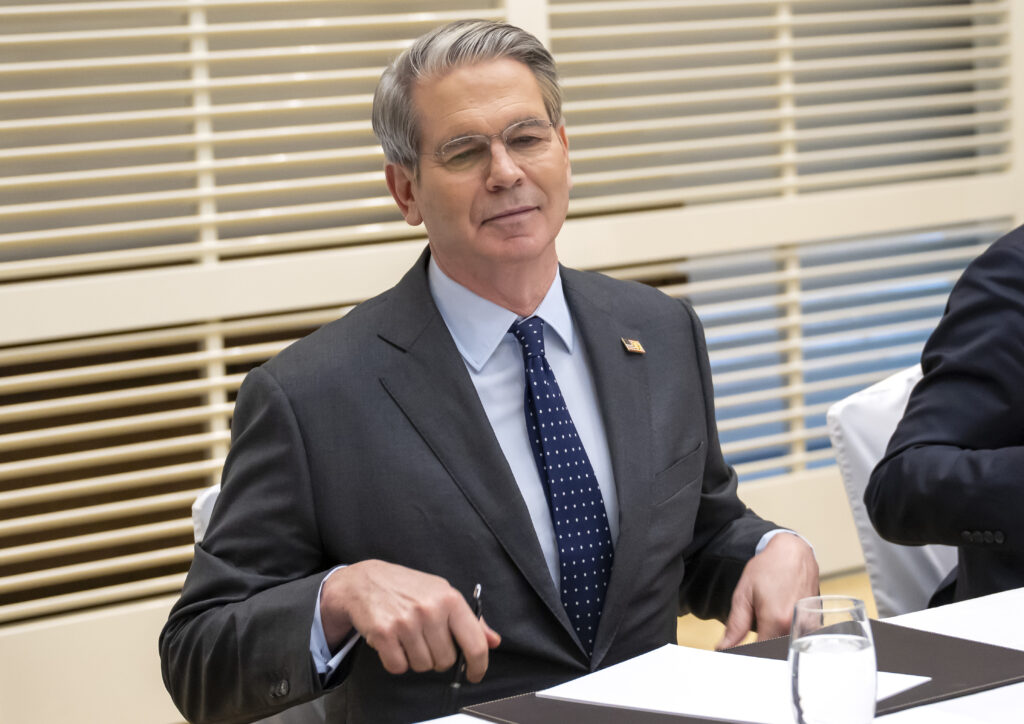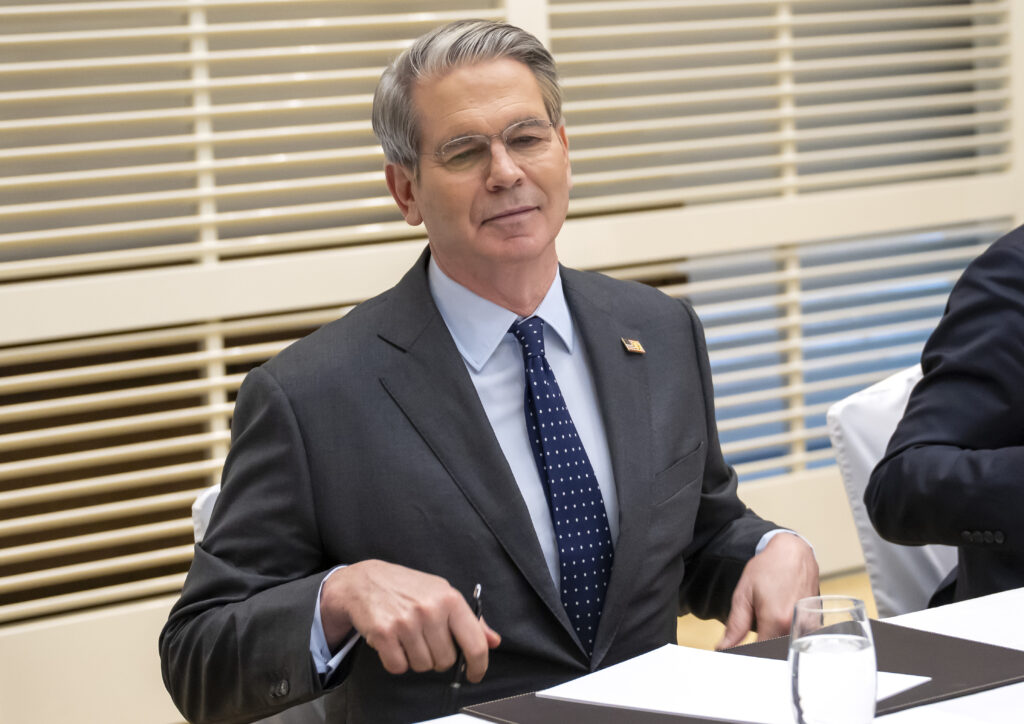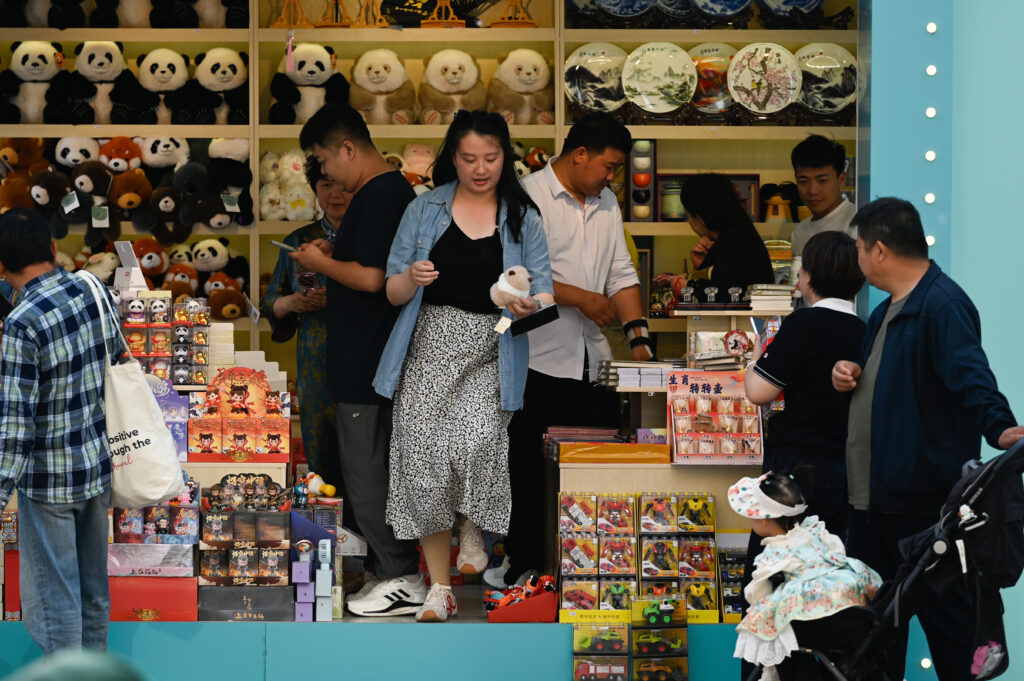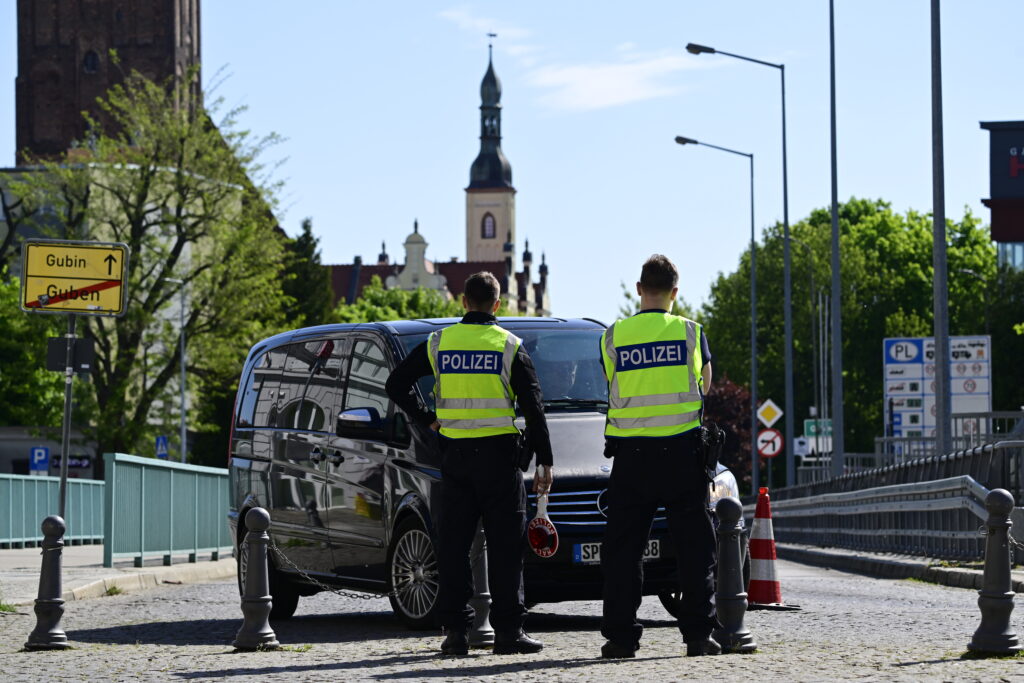Chine et Etats-Unis : des négociations commerciales pour calmer le jeu
Secrétaire américain au Trésor, vice-Premier ministre chinois : Washington et Pékin ont dépêché des poids lourds à Genève ce week-end pour tenter de calmer le jeu dans une guerre commerciale lancée par Donald Trump dont les effets délétères se font sentir sur les deux premières économies mondiales.Les discussions – au plus haut niveau depuis le début de l’affrontement à coup de droits de douane au retour de Donald Trump à la Maison Blanche – sont prévues samedi et dimanche dans la ville suisse du bord du lac Léman et vont réunir le secrétaire américain au Trésor Scott Bessent, le représentant au Commerce Jamieson Greer et le vice-Premier ministre chinois He Lifeng. Le lieu de réunion est entouré du plus grand secret.Vendredi, Donald Trump a fait un geste en suggérant de baisser à 80% les droits de douane punitifs qu’il a lui-même imposés sur les produits chinois. “Le président aimerait régler le problème avec la Chine. Comme il l’a dit, il aimerait apaiser la situation”, a lancé vendredi soir le secrétaire au Commerce Howard Lutnick, sur Fox News.Le geste reste symbolique, car à ce niveau les droits de douane ne seraient toujours pas supportables pour la plupart des exportations chinoises vers les Etats-Unis.Depuis son retour à la Maison Blanche en janvier, Donald Trump a fait des droits de douane un outil politique. Il a imposé une surtaxe de 145% sur les marchandises venant de Chine, en plus des droits de douane préexistants. Pékin, qui a promis de combattre “jusqu’au bout” les surtaxes de Donald Trump, a riposté avec 125% de droits de douane sur les produits américains.Résultat: les échanges bilatéraux sont pratiquement à l’arrêt et les marchés ont connu de violents soubresauts.Les discussions prévues à Genève sont donc “un pas positif et constructif vers la désescalade”, a estimé la directrice générale de l’Organisation mondiale du commerce (OMC) Ngozi Okonjo-Iweala à la veille des discussions.Pour le ministre de l’Economie du pays hôte, Guy Parmelin, c’est déjà “un succès” que “les deux parties se parlent”.- Désescalade -Le vice-Premier ministre chinois semble arriver à la table des discussions avec un atout. Pékin a annoncé vendredi un bond de 8,1% de ses exportations en avril, un chiffre quatre fois supérieur aux prévisions des analystes, mais les exportations vers les Etats-Unis ont chuté de près de 18%. Si l’on en croit les Chinois, ce sont aussi les Américains qui ont demandé à avoir ces discussions. Donald Trump “ne va pas unilatéralement baisser les droits de douane sur la Chine. On doit aussi voir des concessions de leur part”, a averti sa porte-parole, Karoline Leavitt.”Je pense que c’est le résultat qu’espère le président, un monde de désescalade où nous recommencerons à commercer les uns avec les autres, et où nous travaillerons ensemble sur un grand accord”, a expliqué jeudi le ministre du Commerce Howard Lutnick à la chaîne de télévision CNBC.- Quel résultat ? -“Un résultat possible des discussions en Suisse serait un accord pour suspendre la plupart, voire la totalité, des droits de douane imposés cette année, et cela pendant la durée des négociations” bilatérales, déclare à l’AFP Bonnie Glaser, qui dirige le programme Indo-Pacifique du German Marshall Fund, un cercle de réflexion à Washington.Spécialiste de l’économie chinoise à l’Asia Society Policy Institute, organisation basée aux Etats-Unis, Lizzi Lee s’attend à un potentiel “geste symbolique et provisoire”, qui pourrait “apaiser les tensions, mais pas régler les désaccords fondamentaux”.Sur le plan “pratique”, cela coince aussi, selon Bill Reinsch, expert du Center for Strategic and International Studies.Donald Trump veut rencontrer son homologue Xi Jinping, “trouver un accord avec lui, et qu’ensuite leurs subordonnés règlent les détails”, décrit-il à l’AFP, alors que les Chinois “veulent que tous les sujets soient réglés avant une réunion” des deux présidents.Xu Bin, professeur à l’école de commerce international Chine Europe (CEIBS) de Shanghaï ne s’attend pas à ce que les droits de douane reviennent à un “niveau raisonnable”: “Même si cela descend, ce sera probablement de moitié, et, là encore, ce sera trop haut pour avoir des échanges commerciaux normaux.”burs-vog/pt





